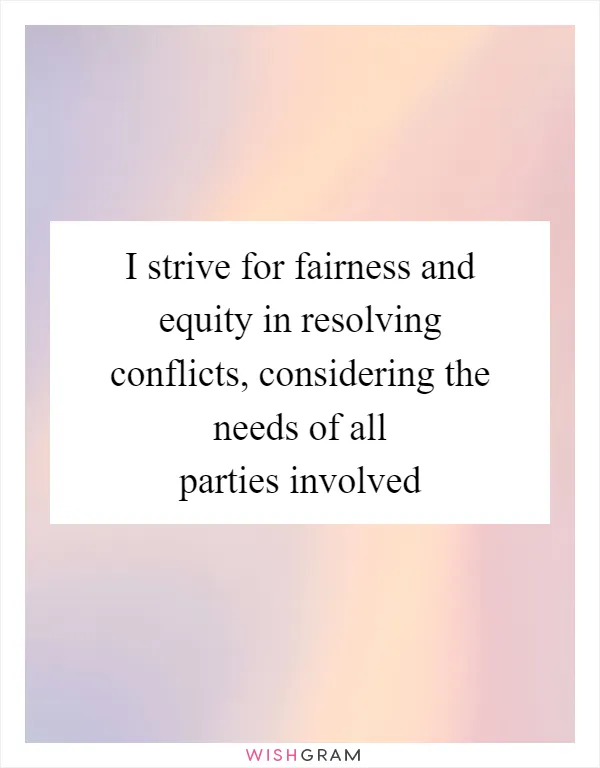I strive for fairness and equity in resolving conflicts, considering the needs of all parties involved
The affirmation "I strive for fairness and equity in resolving conflicts, considering the needs of all parties involved" can help you navigate difficult situations with grace and compassion. When conflicts arise, it's easy to get caught up in our own emotions and desires, but it's important to remember that there are other people involved who have their own needs and perspectives.
To strive for fairness and equity means that you are committed to finding a solution that works for everyone, not just yourself. This requires active listening, empathy, and a willingness to compromise. It also means that you are open to feedback and willing to adjust your approach if necessary.
When resolving conflicts, it's important to consider the needs of all parties involved. This means taking the time to understand each person's perspective and what they hope to achieve. It also means being aware of power dynamics and ensuring that everyone has an equal say in the process.
Fairness and equity are not always easy to achieve, but they are essential for building strong relationships and creating a sense of trust and respect. When you strive for fairness and equity, you are showing that you value the opinions and feelings of others, and that you are committed to finding a solution that benefits everyone.
One way to ensure fairness and equity in conflict resolution is to use a collaborative approach. This involves bringing all parties together to work towards a common goal. It requires active listening, open communication, and a willingness to compromise. By working together, you can find a solution that meets everyone's needs and avoids unnecessary conflict.
Another important aspect of fairness and equity is recognizing and addressing power imbalances. This can be especially challenging in situations where one party has more authority or resources than the others. However, it's important to ensure that everyone has an equal say in the process and that their needs are taken into account.
